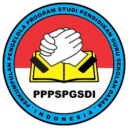MODEL PENILAIAN HASIL BELAJAR DAN KARAKTER
DOI:
https://doi.org/10.35568/naturalistic.v2i2.194Keywords:
teachers; characters; assessments; students.Abstract
The purpose of this article is to provide an overview of student learning and character assessment. The assessment of student learning has been focus more on mastery of material, but less attention to aspects of character. Whereas in education has two dimensions of purpose, namely to be smart and good morals. Intelligence has related to cognitive, while character has related to affective. Through this study, has expected to obtain a model of assessment that involves cognitive and affective aspects in an integrated manner. The method of study has done in compiling the article through literature study, i.e. studying the theory or opinion relating to student learning assessment. Based on this study, it concluded that: (1) Assessment of learning and character carried out independently. (2) Teachers face constraints assessing the character of students. (3) There are a number of interventions to the teacher's assessment; (4) Collaborative assessment of learning and character makes it easier for teachers and schools to make responsible decisions. (5) Assessment of learning has a positive implication on the formation of student character or otherwise.
Downloads
Downloads
Published
Versions
- 2020-07-06 (2)
- 2018-04-23 (1)
How to Cite
Issue
Section
License
Copyright (c) 2018 NATURALISTIC : Jurnal Kajian Penelitian Pendidikan dan Pembelajaran

This work is licensed under a Creative Commons Attribution-ShareAlike 4.0 International License.
Copyright of Journal Naturalistic : Jurnal Kajian Penelitian Pendidikan dan Pembelajaran (e-ISSN:2548-8589, p-ISSN:2528-2921).
Open Access Policy
This journal provides immediate open access to its content on the principle that making research freely available to the public supports a greater global exchange of knowledge.
This journal is open access journal which means that all content is freely available without charge to users or / institution. Users are allowed to read, download, copy, distribute, print, search, or link to full text articles in this journal without asking prior permission from the publisher or author. This is in accordance with Budapest Open Access Initiative.






